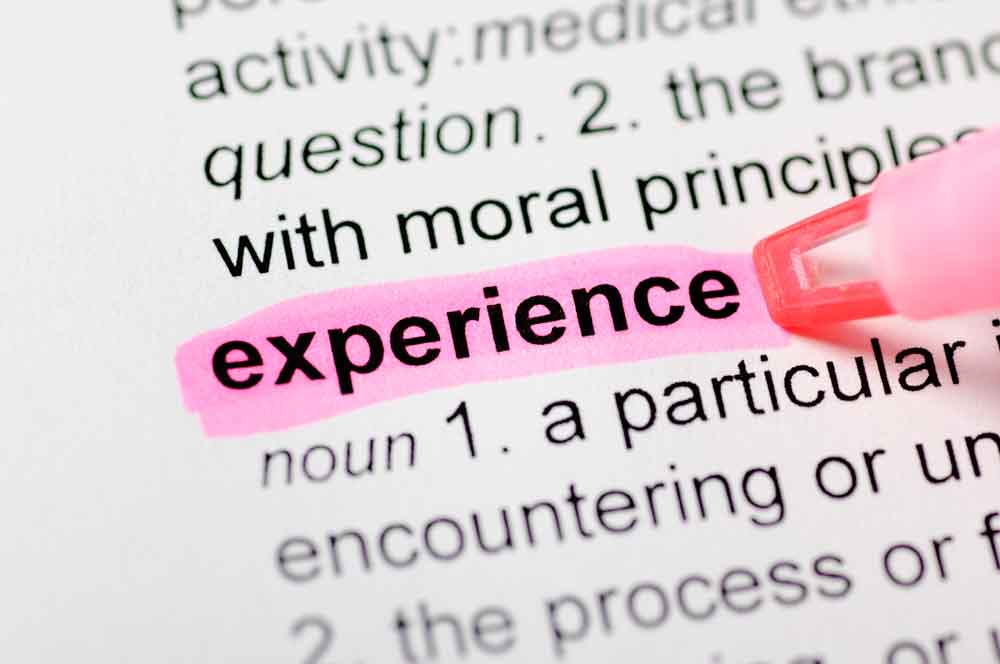The truth is you don't need to take an event planning course to become an event planner.
Most websites with information about how to become an event planner are just trying to sell you event planning courses.
Additionally, many of these courses simply place far too much emphasis on all the wrong topics—and not nearly enough on the topics that potential employers are actually interested in.
In some cases, the event planning courses they're selling aren't even accredited and therefore, it could be argued, of questionable value
Before you consider taking any event planning course, be sure to read the advice below from the professionals.

Other websites about how to become an event planner often make the following claims—many of which are, at best, half-truths or, at worse, outright lies:

There are no formal qualifications required to become an event planner. With event planning, even if you’ve studied, it doesn’t mean you are qualified. Taking an event planning course alone will not qualify you for an entry-level job in the industry.

A ‘certificate’ issued by a school to say you’ve completed an event planning course does not make you a certified event planner. To become certified, you must apply to a professional association such as ILEA (formerly ISES) or the Convention Industry Council. For more information, read my article Why You Don’t Need Event Planning Certification—Yet.

A certificate might—and I stress might—give you a competitive advantage BUT only if you have significant relevant experience AND a certificate. If another candidate has better/more experience, but no certificate, they'll still have a bigger advantage in the jobs market. Employers will be looking at experience first, education second. It's also worth keeping in mind that a lot of event planning courses offered online are unaccredited. This means that anyone can set themselves as a course-provider and print off certificates in their spare bedroom which have little or no value in the real world.

Often, online course-providers and tutors are not the leading experts in their field. Just because someone has been doing it a long time, it doesn’t necessarily mean they are at the top of their game. Check their credentials and look for notable career achievements—other than just 'I've been doing this for 20 years'. You need to ask yourself, is this the best person for me to learn from?

Many course-providers create their own proprietary designations that you can put after your name, but that doesn't mean they are industry-recognized. How credible do you think you will look to employers if you use a designation that isn’t one of the few industry-recognized certifications? For more information on industry-recognized certifications see Event Planning Certification.

No employer will hire you just because you’ve completed a course. In event planning, far greater emphasis is placed on experience than education.

Even if you take an event planning course, you will then need to spend months building up [often unpaid] experience before most employers will consider hiring you—even for an entry-level job.

It’s simply inconceivable that someone can take a quick event-planning course then start up their own business without having first worked in the industry for several years. The events industry is based on networking, contacts, and personal relationships. Most, if not all, business tends to come from referrals and recommendations—not from sending out brochures. If you take a course and start your own business from day one, chances are you’ll just end up with a nice website and some business cards, but no paying clients. Remember, anyone can set up a company, but that doesn't mean it will be a business.
Unlike other websites, this site does not have a vested interest in trying to sell you event planning courses.
The information given—both here and in the accompanying book—aims to give you unbiased advice to help you make an informed decision about whether taking an event planning course is right for you or not.
Based on interviews with 19 leading employers, recruiters, and experienced event professionals—representing all the main sectors of the industry—it provides a realistic insight into how the industry itself regards event planning courses.
Then, the accompanying book, Become an Event Planner: Secrets for Getting Hired from Employers, Recruiters, and Event Professionals reveals in-depth advice about the type of event planning training and experience that employers want job-seekers to have.

“I think if someone wants to study that’s great, but a lot of people in the industry don’t have an event management qualification. It’s not really about the qualification. If you look at very successful employees and freelancers, what they’ve got is experience.”
In the previous article Why You Don't Need Event Planning Certification—Yet we established that taking an event planning course does not make you a certified event planner. Therefore, you now need to consider whether formal study is still the right path for you.
To do this, you first need to understand what will happen when you’ve finished your studies.
As I touched upon earlier, taking an event-planning course on its own will not make you qualified to get work in the industry.
It might make you a little better prepared, in terms of how much you understand. However to an employer, a course or qualification on paper will, on its own, count for very little—until it’s combined with experience.

Taking an event planning course is not a short cut to getting a job. In fact, if anything it might slow down the process. When you’ve finished studying, in all likelihood you’ll still need to seek volunteer opportunities and unpaid work—in order to build up a portfolio of experience—before anyone will hire you for a paid position.
So, while there are advantages to learning the theoretical side of event planning before you try to get experience, it’s also possible to learn this on the job while simultaneously gaining real-world experience.
Therefore, you just need to decide whether you’re going to study first, or go straight into looking for work experience.
“I’ve actually never hired anyone that had any event management qualification. I tend to look for people who have broader experience. I don’t think these courses are the only way, or necessarily even the best way, into the industry. Experience is much more important.”
As I discussed in the previous article The Truth about Event Planning Training & Education, it’s important to remember that the majority of people working in the events industry today did not study event management or take classes in event planning.
That is because formal courses weren’t available until fairly recently. Now, just because the industry was founded—and is still largely populated—by people who didn’t study event planning, that doesn’t mean that’s the preferable route to take now that there are courses available.
What it does mean is that taking an event-planning course isn’t necessary in order to get started in the profession. As a course alone won’t qualify you to work as an event planner, the value in taking one is to get a head start in learning some of the theory and procedures used.
However, as the majority of professionals working in the industry—who didn’t take a course—are a testament to, this is something you can teach yourself.

If you’re prepared to jump straight into the industry there are many opportunities available that, if you use them strategically—to observe, question and learn—and then supplement this real-world experience with some reading and research, then it’s perfectly possible to work your way up and become an event planner without studying first.
For more in-depth advice on what these opportunities are and how to use them to learn about event planning, check out this site's accompanying book Become an Event Planner: Secrets for Getting Hired from Employers, Recruiters, and Event Professionals.
“My problem with event courses is that you often aren’t getting hands-on experience, and this job is all about experience. The fact that you’ve trained for it at college doesn’t tell me you’re going to be OK onsite. If you’ve done a course, that’s great, but you’re not going to stand out anymore to me than someone who hasn’t. The candidate with more experience is definitely going to be more valuable to me.”
Most of the useful elements taught in a classroom environment are procedure-based; strategic planning, timelines, schedules, budgets, risk assessment, and event safety. A lot of these things can actually be learned by reading books or taking a few online classes/video tutorials, while simultaneously putting them into practice on the job.
Whereas, someone who studies in the classroom then has to learn how to apply that knowledge to real-world situations at a later date.
Of course, a lot of what goes into event planning cannot be taught in the classroom anyway. It’s about how you think on your feet and react to situations, whether you have the confidence to take control and lead, how resourceful you are, whether you can think laterally, visualize, and problem-solve, and how well you can negotiate and communicate with others.
Which is perhaps why many employers aren’t that impressed by someone taking an event-planning course on its own. It raises doubts about whether they will know how to deal with something going wrong onsite, under pressure, when they cannot have experienced those types of situations in a classroom.

Event planning isn’t black and white. You can plan, prepare, and try to implement as much control over a situation as possible in advance, but no matter how well thought-out everything is, an event always takes on a life of its own onsite. There are simply too many variables for you to plan for every eventuality. The test of a good planner is only partly based on what they do in advance to prepare for an event—the procedures that can be taught in the classroom. Perhaps more important is how they think, operate and respond onsite at an event when faced with real situations.
“I’m a great believer in learning onsite. You learn so much more from being onsite than you ever will from a textbook or from being in a classroom. So I always look far more for onsite experience when it comes to hiring.”
While we’ve established that taking an event planning course is not necessary, that doesn't mean they don't have any value at all. In fact, if you choose the right type of event planning course, it's possible to use this to give yourself a strategic advantage when it comes to seeking real-world experience.
That said, it's imperative that you choose the right event planning course.
Nowadays, there are many different types of event planning courses available offering degrees, diplomas, and certificates. Some of these are accredited courses offered by reputable schools and universities, while others are simply by commercial businesses that make money from selling courses offering ‘diplomas’ and ‘certificates’ which have little or no value in the industry.
Similarly, while some of these courses teach the most relevant and necessary topics—the ones employers are looking for job-seekers to have an understanding of—others are filled with 'soft' topics and filler modules that, while they might make the course appear more fun, will not prepare you for the realities of the job.
It's also important that, in an industry that favors experience over education, you don't spend an unnecessary long time studying event planning in a classroom environment—when that time could be much better spent gaining hands-on experience.
All of these issues are discussed in more detail—along with further expert views from the professionals—in this site's companion book Become an Event Planner: Secrets for Getting Hired from Employers, Recruiters, and Event Professionals.

Advice includes:
Learn how to get into event planning by obtaining exactly the type of event planning experience that employers are looking for.